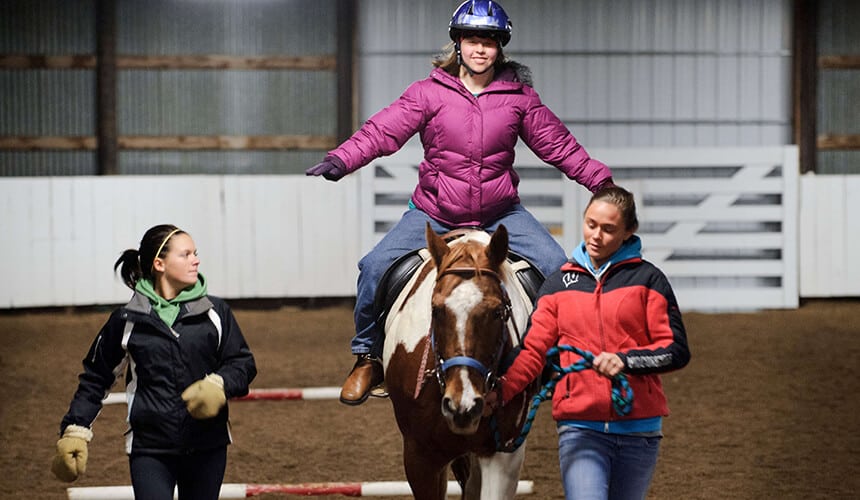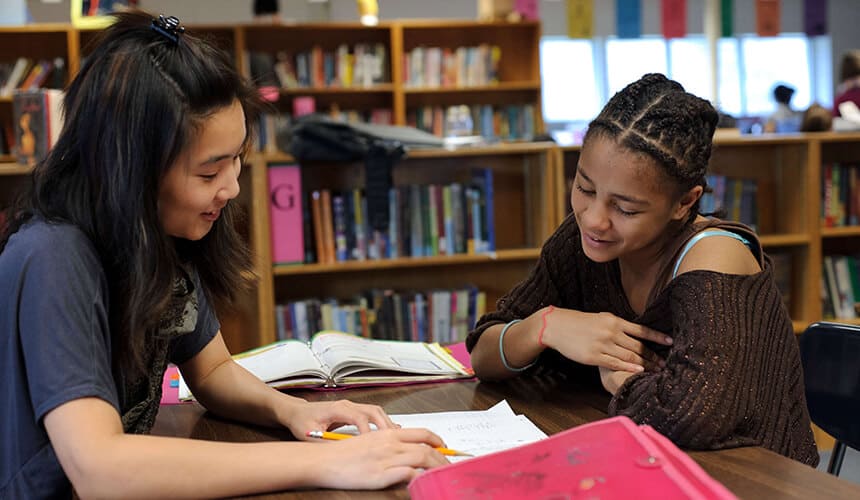Morgridge Center for Public Service
Learning the lessons of service
Craig Kohn BS2008 packed up the lessons he learned through the Morgridge Center for Public Service and put them to work making a difference in the lives of high school students and teachers.
During his student career, Kohn won a Wisconsin Idea Fellowship to help create environmental and natural resource programming for the Wisconsin Future Farmers’ Association. The experience stuck with him.
Today, he is the principal at Waterford (Wisconsin) Union High School, has worked on a national taskforce to increase students’ career preparedness in agriculture, and helped to develop curricular and teaching methods for other educators.
“The Morgridge Center showed me the power that a small group of committed individuals can have on permanently changing the world for the better,” he says. “It was a life-changing opportunity that has continued to inspire me to pursue global change.”
The center brings the Wisconsin Idea to life by promoting engagement and learning through service. It is a central hub for public service, academic service learning, community-based research, and engaged scholarship.
Created in 1996 with a gift from John BBA1955 and Tasha BS1955 Morgridge, the center demonstrates that small-scale interactions make stronger communities and better students.
Its Badger Volunteers program involves about 1,500 students each year in health, sustainability, and educational projects throughout the Madison community.
The center awards Wisconsin Idea Fellowships to undergraduate projects aimed at solving a challenge identified along with a local or global community partner.
Its students also reach out as part of a community partnership called Achievement Connections, which aims to narrow the racial achievement gap in local schools by providing high school students with high-quality math tutoring.
“Students from the university are out in the community, helping kids with homework and playing games with youth in after-school programs and community centers,” explains center director Kathy Cramer BA1994. “So, not only are our students helping in the community, but they are getting a direct experience learning about issues such as poverty, homelessness, and the achievement gap. These lessons are much more meaningful and real than if we had just sat around and talked about these issues in class.”
 37° F
37° F
